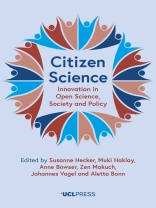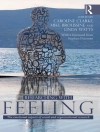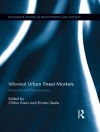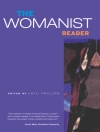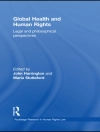Citizen science, the active participation of the public in scientific research projects, is a rapidly expanding field in open science and open innovation. It provides an integrated model of public knowledge production and engagement with science. As a growing worldwide phenomenon, it is invigorated by evolving new technologies that connect people easily and effectively with the scientific community. Catalysed by citizens’ wishes to be actively involved in scientific processes, as a result of recent societal trends, it also offers contributions to the rise in tertiary education. In addition, citizen science provides a valuable tool for citizens to play a more active role in sustainable development.
This book identifies and explains the role of citizen science within innovation in science and society, and as a vibrant and productive science-policy interface. The scope of this volume is global, geared towards identifying solutions and lessons to be applied across science, practice and policy. The chapters consider the role of citizen science in the context of the wider agenda of open science and open innovation, and discuss progress towards responsible research and innovation, two of the most critical aspects of science today.
Praise for Citizen Science
‘The authors effectively evaluate innovations in technology, participation, education, and policy focused on expanding the impact of citizen science. The writers’ theory of learning is especially useful … A significant achievement of the book is its recommendation to democratize citizen science … [The] emphasis on “education of attention” [is] particularly enlightening.’
Discover Magazine
‘An important contribution to literature about citizen science. The authors effectively evaluate innovations in technology, participation, education, and policy focused on expanding the impact of citizen science. The writers’ theory of learning is especially useful; they describe educational techniques to enhance and improve project participation and the participant experience. … A significant achievement… is its recommendation to democratize citizen science.’
PLOS Blogs
‘If you want to understand what citizen science is, how it has already demonstrated the value in mobilising large groups of citizen scientist in doing research and solving challenges and how we can build on this potential in the future, this is a great place to start.’
Nesta Blog
‘if you are a professional researcher who wants to learn more about how to get started with designing your citizen science project, this is a good place to start.’
Generation R
Зміст
Foreword
Carlos Moedas
1 Innovation in open science, society and policy – setting the agenda for citizen science
Susanne Hecker, Muki Haklay, Anne Bowser, Zen Makuch, Johannes Vogel and Aletta Bonn
PART I Innovation in citizen science – setting the scene
2 Ten principles of citizen science
Lucy Danielle Robinson, Jade Lauren Cawthray, Sarah Elizabeth West, Aletta Bonn and Janice Ansine
3 Scientific impacts and innovations of citizen science
Jennifer L. Shirk and Rick Bonney
4 Participatory citizen science
Muki Haklay
5 Technology infrastructure for citizen science
Peter Brenton, Stephanie von Gavel, Ella Vogel and Marie-Elise Lecoq
6 Evaluating citizen science: Towards an open framework
Barbara Kieslinger, Teresa Schäfer, Florian Heigl, Daniel Dörler, Anett Richter and Aletta Bonn
PART II Innovation in science with and for society
7 Watching or being watched: Enhancing productive discussion between the citizen sciences, the social sciences, and the humanities
Dana Mahr, Claudia Göbel, Alan Irwin and Katrin Vohland
8 The value of indigenous and local knowledge as citizen science
Finn Danielsen, Neil D. Burgess, Indiana Coronado, Martin Enghoff, Sune Holt, Per M. Jensen, Michael K. Poulsen and Ricardo M. Rueda
9 Citizen engagement and collective intelligence for participatory digital social innovation
Jasminko Novak, Mathias Becker, François Grey and Rosy Mondardini
10 Creative collaboration in citizen science and the evolution of Think Camps
Margaret Gold and Erinma Ochu
11 Integrating citizen science into university
Daniel Wyler and Muki Haklay
PART IIA Case studies
12 Citizen science on the Chinese mainland
Chunming Li
13 The European citizen science landscape – a snapshot
Susanne Hecker, Lisa Garbe and Aletta Bonn
14 Stakeholder engagement in water quality research: A case study based on the Citclops and MONOCLE projects
Luigi Ceccaroni and Jaume Piera
15 Global mosquito alert
John R.B. Palmer, Martin Brocklehurst, Elizabeth Tyson, Anne Bowser, Eleonore Pauwels and Frederic Bartumeus
PART III Innovation at the science-policy interface
16 Citizen science for policy formulation and implementation
Susana Nascimento, Jose Miguel Rubio Iglesias, Roger Owen, Sven Schade and Lea Shanley
17 Citizen science and Responsible Research and Innovation
Melanie Smallman
18 Conservation outcomes of citizen science
Heidi L. Ballard, Tina B. Phillips and Lucy Robinson
19 Capacity building in citizen science
Anett Richter, Daniel Dörler, Susanne Hecker, Florian Heigl, Lisa Pettibone, Fermin Serrano Sanz, Katrin Vohland and Aletta Bonn
20 Citizen science in environmental protection agencies
Roger P. Owen and Alison J. Parker
PART IV Innovation in technology and environmental monitoring
21 Citizen science technologies and new opportunities for participation
Suvodeep Mazumdar, Luigi Ceccaroni, Jaume Piera, Franz Hölker, Arne J. Berre, Robert Arlinghaus and Anne Bowser
22 Maximising the impact and reuse of citizen science data
Jamie Williams, Colin Chapman, Didier Guy Leibovici, Grégoire Loïs, Andreas Matheus, Alessandro Oggioni, Sven Schade, Linda See and Paul Pieter Lodewijk van Genuchten
23 Enhancing national environmental monitoring through local citizen science
Hester Volten, Jeroen Devilee, Arnoud Apituley, Linda Carton, Michel Grothe, Christoph Keller, Frank Kresin, Anne Land Zandstra, Erik Noordijk, Edith van Putten, Jeroen Rietjens, Frans Snik, Erik Tielemans, Jan Vonk, Marita Voogt and Joost Wesseling
24 Citizen science to monitor light pollution – a useful tool for studying human impacts on the environment
Sibylle Schroer, Christopher C.M. Kyba, Roy van Grunsven, Irene Celino, Oscar Corcho and Franz Hölker
PART V Innovation in science communication and education
25 Science for everybody? Bridging the socio-economic gap in urban biodiversity monitoring
Taru Peltola and Isabelle Arpin
26 Learning and developing science capital through citizen science
Richard Edwards, Sarah Kirn, Thomas Hillman, Laure Kloetzer, Katherine Mathieson, Diarmuid Mc Donnell and Tina Phillips
27 Children and citizen science
Karen E. Makuch and Miriam R. Aczel
28 Turning students into citizen scientists
John Harlin, Laure Kloetzer, Dan Patton, Chris Leonhard and Leysin American School high school students
29 Citizen science and the role of natural history museums
Andrea Sforzi, John Tweddle, Johannes Vogel, Grégoire Lois, Wolfgang Wägele, Poppy Lakeman-Fraser, Zen Makuch and Katrin Vohland
30 Stories can change the world – citizen science communication in practice
Susanne Hecker, Monique Luckas, Miriam Brandt, Heidy Kikillus, Ilona Marenbach, Bernard Schiele, Andrea Sieber, Arnold J.H. van Vliet, Ulrich Walz and Wolfgang Wende
Conclusions
31 Citizen science to foster innovation in open science, society and policy
Aletta Bonn, Susanne Hecker, Anne Bowser, Zen Makuch, Johannes Vogel and Muki Haklay
Про автора
Aletta Bonn is Professor of Ecosystem Services at the Friedrich Schiller University of Jena and Head of Department at the Helmholtz Centre for Environmental Research – UFZ within the German Centre for Integrative Biodiversity Research (i Div) Halle-Jena-Leipzig.
